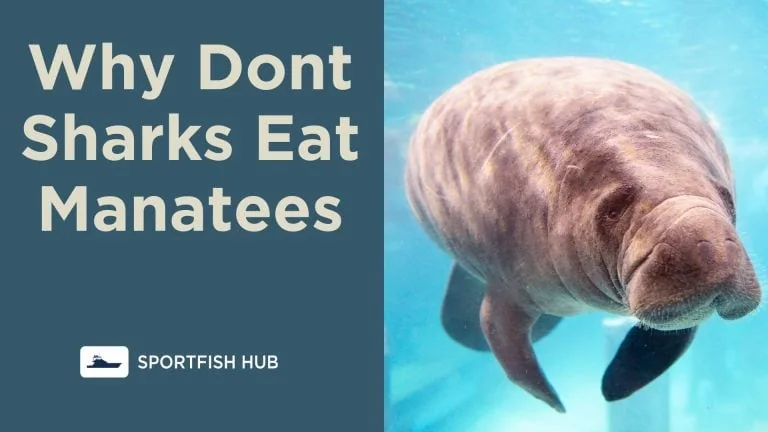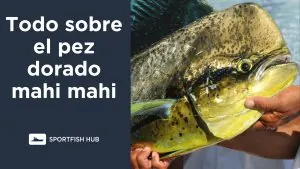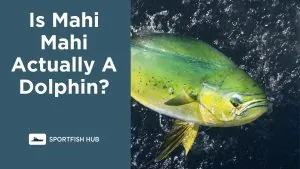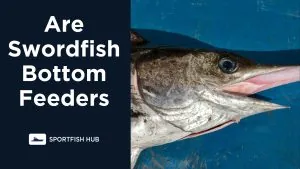Manatees and sharks inhabit very different environments, making predation uncommon. However, on rare occasions, sharks have been known to attack manatees. This article explores the reasons why sharks don’t usually eat Manatees.
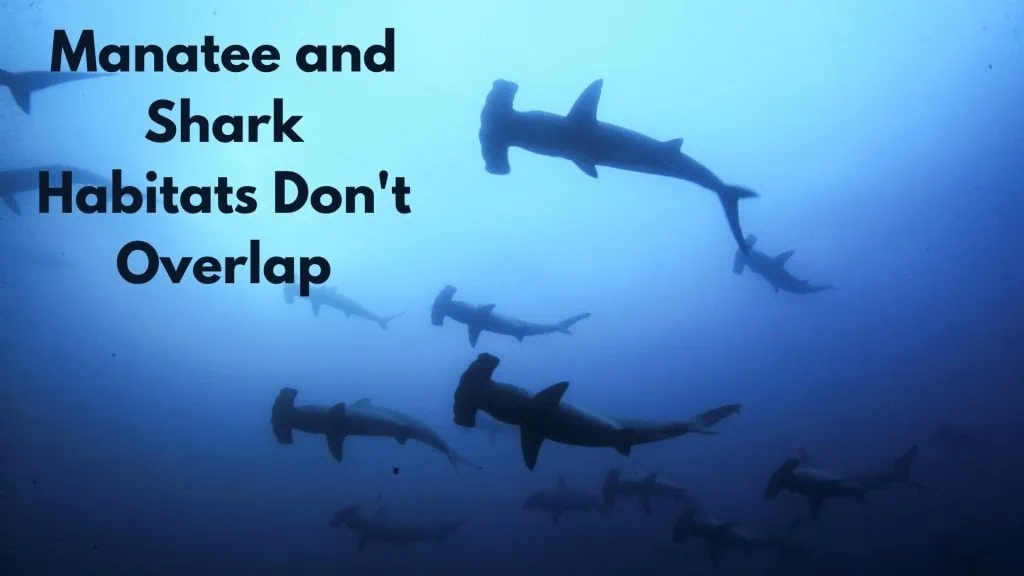
Manatee and Shark Habitats Don’t Overlap
- Manatees spend most of their time in shallow, coastal waters and rivers.
- Sharks typically live in deeper ocean waters away from coastlines.
- The different habitats mean manatees and sharks rarely encounter each other.
| Manatee Habitats | Shark Habitats |
|---|---|
| Freshwater rivers and springs | Deep ocean waters |
| Warm, shallow coastal waters | Offshore reefs |
| Estuaries and bays | Open water pelagic zone |
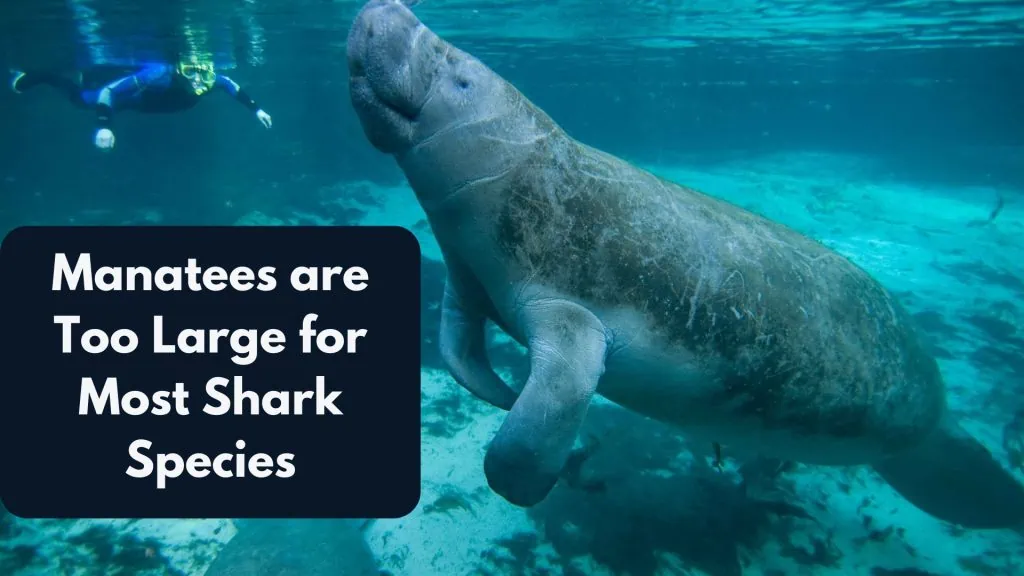
Manatees are Too Large for Most Shark Species
- Adult manatees can weigh over 1,000 pounds.
- Their large size makes them difficult for sharks to hunt.
- Only the very largest shark species can consume fully grown manatees.
Some sharks capable of eating manatees:
- Tiger sharks
- Great white sharks
- Bull sharks
But even they do not actively hunt manatees due to their size.
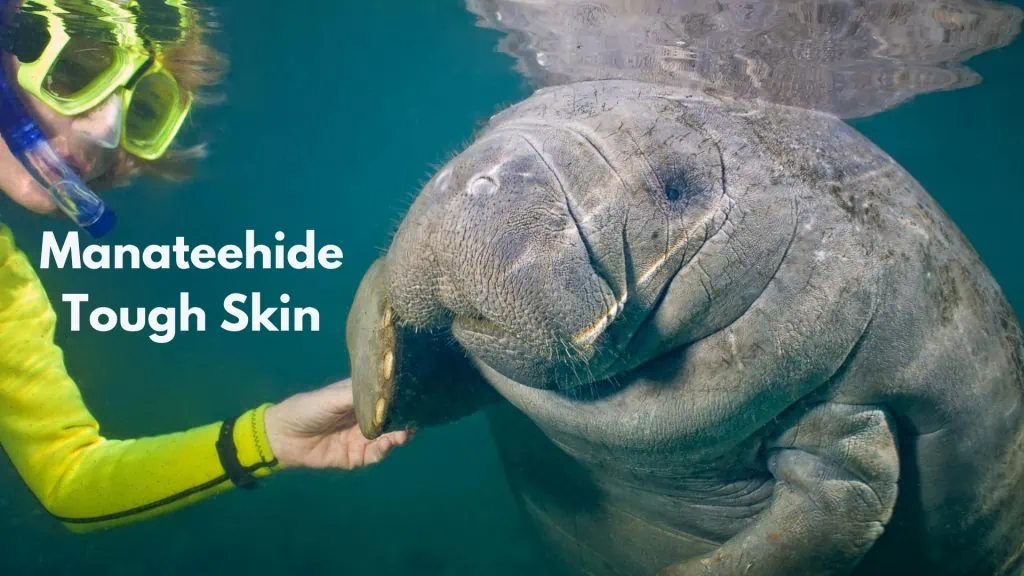
Manateehide Tough Skin
- Manatees have thick, tough skin for protection.
- A shark’s teeth have difficulty penetrating this hide.
- The skin acts as a deterrent against shark attacks.
Manatees also have:
- A thick layer of fat for insulation in cold water.
- Dense bones that are difficult to crush.
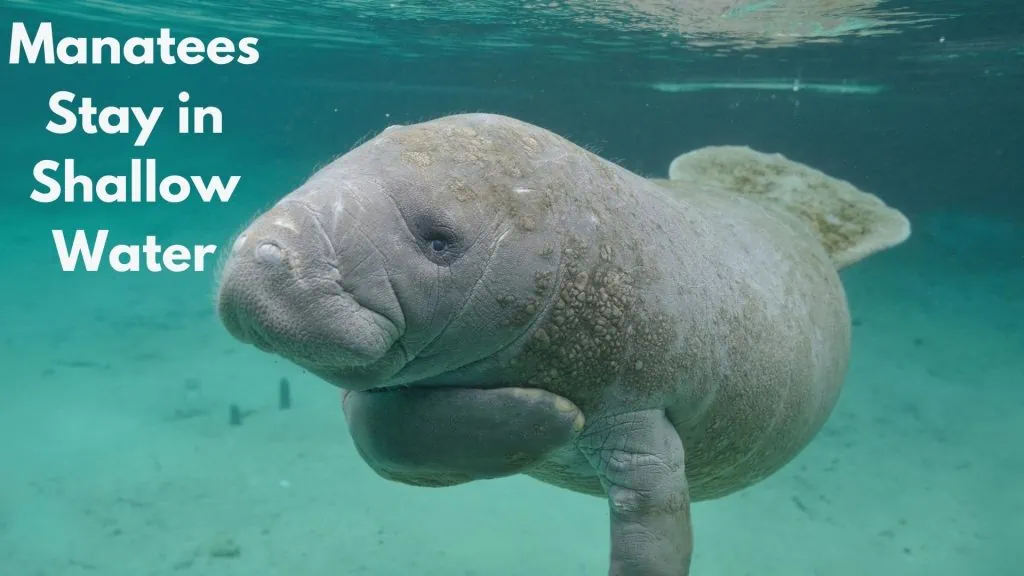
Manatees Stay in Shallow Water
- Manatees stick to shallow coastal areas and rivers.
- Large sharks typically stay in deeper waters offshore.
- Shallow water provides protection against sharks.
Shallow water depths:
- Make it difficult for sharks to swim and maneuver.
- Limit shark access as many species can’t enter very shallow areas.
Manatees are Not Preferred Prey
- Sharks prefer to eat fish, squid, seals and other smaller marine animals.
- The bulk of a manatee makes it an inconvenient meal.
- Sharks are not adapted to hunting slow moving creatures like manatees.
Better shark prey:
- Are smaller and easier to handle.
- Contain more calorie dense flesh.
- Do not have tough skin and bones.
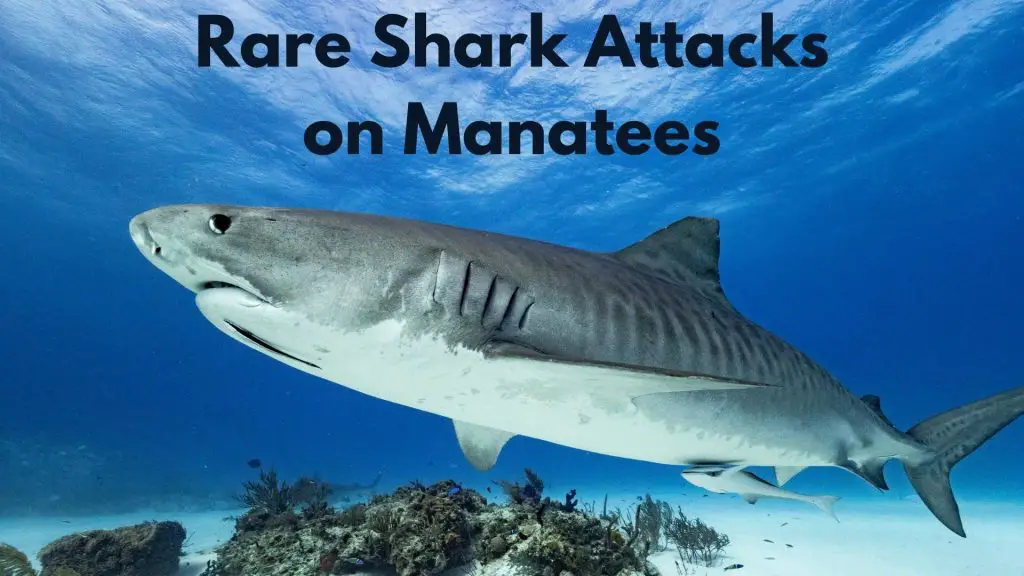
Rare Shark Attacks on Manatees
While shark attacks are unusual, large sharks may occasionally prey on manatees in certain situations:
- When manatees are sick or injured.
- When young calves become separated from their mothers.
- When manatees get trapped in shallow mudflats at low tide.
These cases represent exceptions rather than the norm. Healthy manatees in normal conditions are not hunted by sharks.
Conclusion For Why Sharks Dont Eat Manatees
- Manatee and shark habitats rarely overlap.
- Manatees’ large size and tough skin deter sharks.
- Shallow water offers protection against most shark species.
- Manatees are not preferred shark prey compared to seals and fish.
- While rare shark attacks can occur, they are uncommon events.
The unique adaptations of manatees, coupled with the differences in habitat preferences and hunting behaviors of sharks, explain why these gentle giants are generally safe from shark predation. Conservation efforts now focus on reducing human-related threats to manatee populations.

